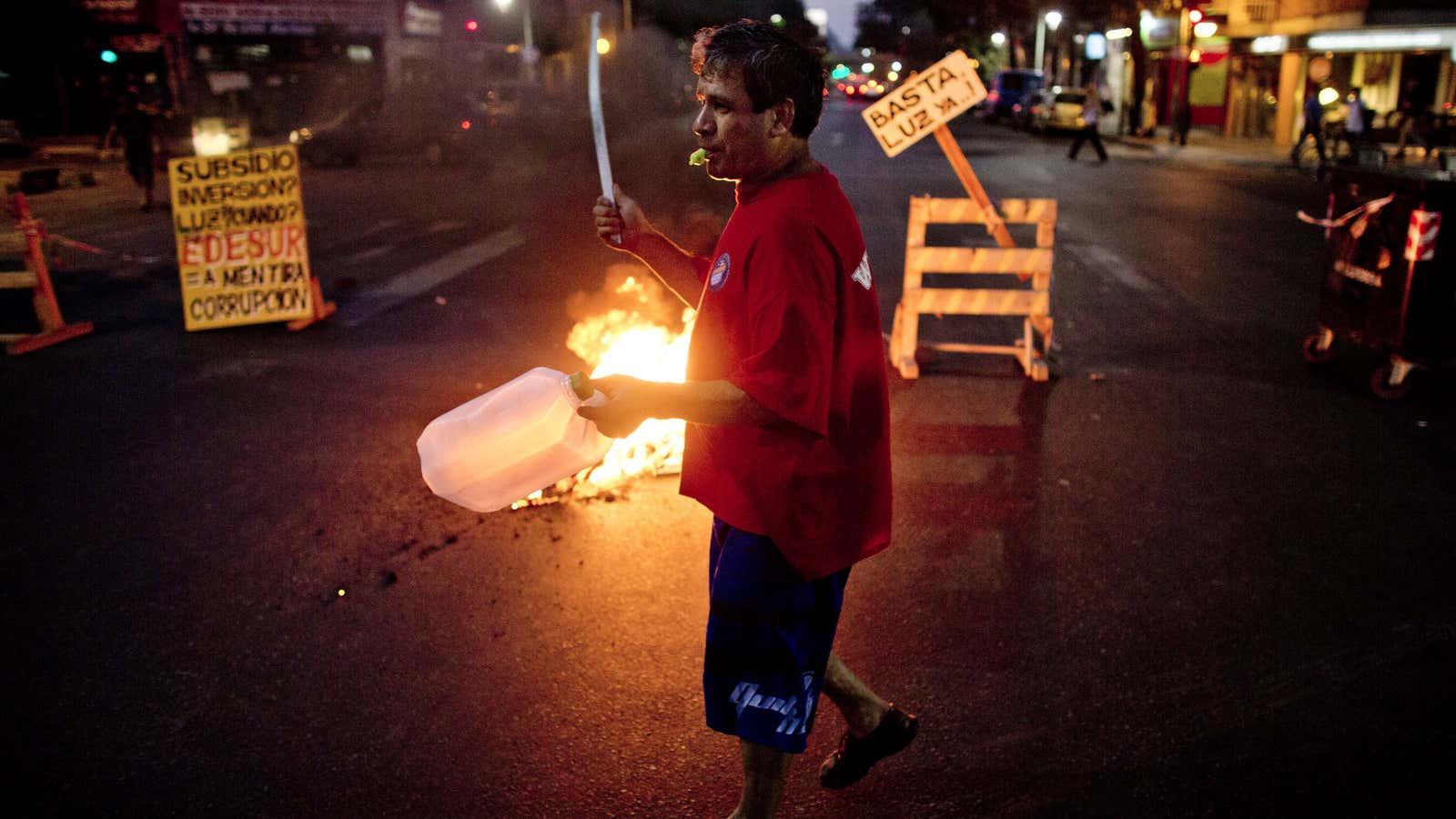BUENOS AIRES, Argentina—No one—not the electricity companies nor the federal or local governments—seems willing or able to handle the electricity demands of Buenos Aires residents.
Since the week before Christmas, blackouts have been darkening businesses and homes (reportedly hundreds of thousands) across the city proper and greater Buenos Aires. Sections of the city, from a stretch of blocks to swaths of neighborhoods, were without power over the holidays during a record heatwave with temperatures hovering just below 100ºF (38ºC). In certain areas, particularly in the southern part of the Buenos Aires province, people were without power for weeks.
Irate citizens took to the streets in protest, clanging pots and lighting contained fires. While the government asserted 2014 began with the electricity running to 98% of homes where power had been out for two weeks, unpredictable outages have continued to hit. A grassroots blackout-tracker map and blog sprung up called “#AcáNoHayLuz” (“there’s no power here”).
Utilities companies Empresa Distribuidora y Comercializadora Norte (EDENOR) and Empresa Distribuidora de Energia Sur SA (EDESUR) are responsible for powering Buenos Aires city and its surrounding province. Since 2002, the companies have been reliant on government subsidies to run operations, as consumer electricity prices have remained locked since then despite climbing annual inflation of around 25%—not to mention more air conditioning units being installed every year and lurching in the peak heat of summer. In November 2011, Cristina Fernández de Kirchner’s administration announced cutting subsidies to commercial consumers and wealthy households, a move estimated to save about $925 million a year.
With the power companies relying on the government for funds, the electricity blame game has been playing out for weeks, with no party taking full responsibility and no new capital looking set to come in.
“The system failed where there was no investment,” said Federal Planning Minister Julio de Vido. In the same speech, he accused the utilities companies of attempting to exploit the outages to procure tariff hikes, which he said the government would not cede.
The government threatened to seize control of the companies prior to Christmas, which, looking back to April 2012 when the government nationalized the country’s largest oil company YPF, was not an empty threat. The cash-strapped administration has not acted on that threat, though. Cabinet chief Jorge Capitanich also expressed that another possible plan was to transfer utilities control to local governments, namely Buenos Aires city and the province, which local leaders rejected as a possibility.
Planning Minister Julio de Vido imposed a series of measures on Edenor and Edesur, announced Jan. 10, that include upping the number of employees focused on blackout-plagued areas. The companies will also be forced to compensate those left without utilities services for the lengthiest periods. Where that money will come from, though, is unknown.
